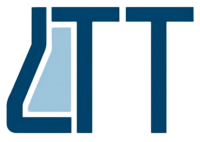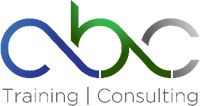
How do I become a laboratory technician?
Certificate III in Laboratory Skills
- There are no mandated entry requirements.
 LTT
LTT
Advanced Diploma of Civil and Structural Engineering (Materials Testing)
- There are no mandated entry requirements.
 Engineering Institute of Technology
Engineering Institute of Technology
Diploma of Laboratory Technology
- There are no mandated entry requirements.
 ABC Training and Consulting
ABC Training and Consulting
Certificate II in Sampling and Measurement
- There are no mandated entry requirements.



Undergraduate Certificate in Science
- There are no mandated entry requirements.


Diploma in Science
- There are no mandated entry requirements.
 The University of Newcastle
The University of Newcastle
Advanced Diploma of Laboratory Management
- Completed Diploma (AQF Level 5) or above in a science, technology, engineering or mathematics (STEM) discipline OR
- Completed Diploma of Laboratory Technology or equivalent qualifications OR
- Evidence of relevant skills, knowledge and employment experience
 ABC Training and Consulting
ABC Training and Consulting
Diploma of Laboratory Technology (Pathology)
- There are no mandated entry requirements.
 TAFE NSW
TAFE NSW
Diploma of Laboratory Technology (Chemistry)
- There are no mandated entry requirements.
 TAFE NSW
TAFE NSW
Related occupations
Medical Laboratory Technician
A Medical Laboratory Technician performs tests on bodily fluids and tissues to assist in diagnosing medical conditions while maintaining patient confidentiality.
Pathology Assistant
A Pathology Assistant prepares and tests samples in medical labs, working independently or in teams, ensuring accurate results using specialist equipment.
Pathology Collector
A Pathology Collector collects and labels bodily specimens from patients, ensuring accurate paperwork and specimen handling for lab testing.
Phlebotomist
A Phlebotomist collects blood samples, prepares them for testing, and must possess excellent interpersonal skills and attention to detail.
Laboratory Attendant
A Laboratory Attendant performs various tasks in medical or research labs, assisting staff, collecting samples, and preparing reports while ensuring safety and accuracy.
Laboratory Supervisor
A Laboratory Supervisor manages lab operations, ensures procedures are followed, meets targets, and oversees staff while maintaining safety and accuracy.
Senior Technical Officer
A Senior Technical Officer coordinates lab research, ensures safety and correct procedures, leads staff, and presents accurate testing results.
Cardiac Technologist
A Cardiac Technologist operates imaging equipment, performs stress tests, analyses ECGs, and supports cardiologists, ensuring patient care.
Biomedical Technician
Biomedical Technicians ensure the safe and efficient operation of medical equipment in healthcare settings by performing maintenance, repairs, and technical support.
Common questions
How can I become a laboratory technician?
To become a laboratory technician in Central Coast, you may want to consider completing the Certificate III in Laboratory Skills. This qualification will equip you with the skills and knowledge necessary for a career in this industry.
Are there training providers in Central Coast?
You can train to become a laboratory technician by completing a qualification with LTT. Find a course provider near you. Once you make an enquiry, a course advisor will get in touch to discuss your study options and course fees.
What study modes are available?
There are several campuses within the Central Coast area that provide laboratory technician training. The closest campus is 12km away from the center of Central Coast. You can also study a laboratory technician course through online learning. Find a course provider that best suits your study needs.
Further reading


Your Guide to Laboratory Technician Training in Australia
7th February 2025
